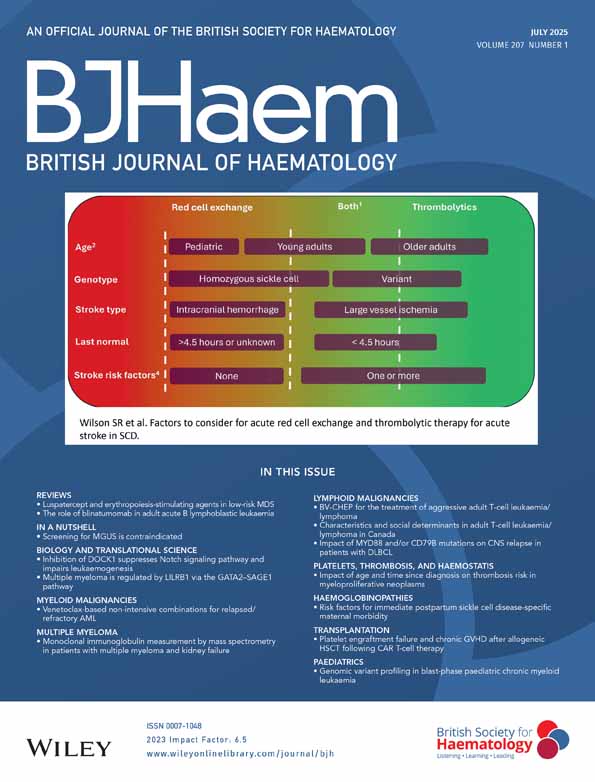Expression and function of pituitary tumour transforming gene for T-lymphocyte activation
Abstract
Summary. Pituitary tumour transforming gene (PTTG) isolated from pituitary tumour cells transforms cells in vitro and causes in vivo tumour formation. PTTG is expressed in several human tumours and cell lines. In normal adult tissues, the testis expresses abundant levels of PTTG mRNA comparable to that found in tumour cells. Although PTTG is not expressed in resting T cells, we showed here that activation of normal adult human T cells using either immobilized anti-CD3 antibodies or phytohaemagglutinin was accompanied by marked PTTG induction, reaching levels observed in human tumour cells. Inhibitors of T-cell functions, such as cyclosporin A and hydrocortisone, decreased induction of PTTG mRNA expression. During T-cell activation, PTTG mRNA abundance corresponded with the increase in S-phase cells, suggesting PTTG involvement in cell cycle-dependent processes. These results showed that PTTG-1 expression follows cell cycling patterns in T lymphocytes, providing a convenient model for studying PTTG functions in normal cells.




